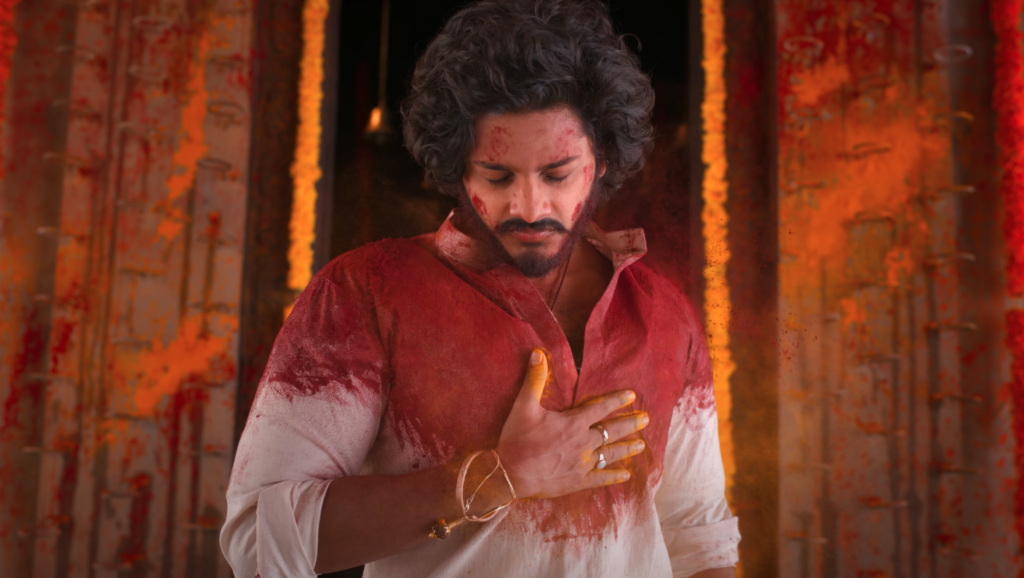Telugu Movie Review: Hanu Man offers a winning superhero saga for kids, but it’s a less compelling choice for adults

Every so often, I encounter a new movie that I wish I could show my 8-year-old self. Hanu Man is the latest example. The boy who ate up juvenile fare like 1995’s Mighty Morphin Power Rangers: The Movie and 1998’s Godzilla would have absolutely adored this light-as-a-feather superhero origin story, even as his reading level likely would have made the subtitles a challenge. At 34, I wasn’t immune to Hanu Man’s playful charms, but I could only invest so much in an odyssey this simple and silly. If you have kids ages 7-12 who are up for a Telugu language adventure, it’s a must-see for the family; others may develop that sinking “this just isn’t made for me” feeling as the movie progresses.
The best family films, of course, are able to drive equal levels of investment among parents and kids, simultaneously speaking to both on their own unique levels. This requires an unassumingly high amount of filmmaking skill. Hanu Man is not one of these movies; it builds a logic-defying world that only those without fully-developed frontal lobes will be able to fully immerse themselves in. You’re bound to approach the movie from a certain distance if you’ve already made it into adolescence; its childishness is readily apparent early on, though not until after a pretty audacious prologue sequence. Granted, Hanu Man should still strike adults as a likable and amiable piece of family-friendly filmmaking, but perhaps better as a babysitter than as a personal source of entertainment.
Most of the action is set in the fictional, impressively realized rural village of Anjanadri, where protagonist Hanumanthu (played by Teja Sajja) languishes as a petty pickpocket, much to the dismay of his roommate sister Anjamma (played by Varalaxmi Sarathkumar). Anjamma would like to get married and move out, but she worries about leaving Hanumanthu on his own, as his only ambition in life seems to be the impossible task of winning the love of Meenakshi (Amritha Aiyer), a city-educated doctor who he grew up with. That all changes, however, when he is one day bestowed superpowers by a mythical gemstone, tied to Lord Rama and the sun.
The exact parameters of Hanumanthu’s new powers, which transform him into the titular superhero, are a little nebulous. At various points in the film, they include superstrength, superspeed, and seeming invincibility (his wounds heal almost instantaneously). It sure is fun to watch him discover them, though. This process has come to be one of the more conventional and laboriously perfunctory sections of most superhero origin stories, but Teja Sajja and his co-star Getup Srinu (a standout as Hanumanthu’s buffalo milk farmer friend Kaasi) make it feel funny and vital. A scene in which Hanumanthu survives being hit by a train, much to Kaasi’s surprise, is comedic gold. His superpowers also have an interesting limitation: they can only be harnessed when the sun is out, as the gemstone appears to rely on the sun’s rays to function.
When the movie pivots from over-the-top humor to over-the-top action, however, it crosses over into pure ridiculousness. This is unlikely to be a problem for kids in the audience – in fact, it may make it even more enjoyable for those under age 12 – but it will likely grow tiresome for you in a hurry if you’re older than that. Hanumanthu first uses his newfound powers to go up against the local thugs who lord over the village, collecting obscene “taxes” from residents and forcing debtors to fight to-the-death for entertainment. Not only is the ultimate action showdown in this story thread completely paint-by-numbers; the antagonist involved, Village Chief Gajapathi (played by Raj Deepak Shetty), is a completely underdeveloped character.
The obligatory, chaste romantic thread in the film, in which Meenakshi increasingly falls for the once-undesirable Hanumanthu as his altruism grows public, is also a complete dud. A big part of the issue is that, in the lead role, Teja Sajja is pretty one-dimensional. He’s perfectly fine in a comedic capacity, playing a misfit-turned-superhero attempting to understand his unlikely new powers. But he has a harder time with the emotional/human element; the film tries to give him opportunities to showcase vulnerability in the sibling relationship with his sister, but Sajja mostly flounders through these. The romantic relationship is no different; Hanumanthu’s puppydog-like desire for Meenakshi doesn’t connect with the audience at all. The two also have no real chemistry onscreen together; Amritha Aiyer is likable as Meenakshi, but we really don’t understand what exactly about her personality Hanumanthu finds so attractive.
After Intermission, the film builds up to a showdown between Hanu Man and “Mega Man,” the supervillain alter-ego of Michael (played by Vinay Rai), a shadowy multimillionaire who comes to the village promising philanthropy with the real motive of stealing Hanu Man’s jewel/powers. Michael is a legitimately engrossing character at his core. The movie opens with a glimpse of his childhood, where he perversely murders his own parents by setting a housefire so he can be more like the superheroes he idolizes, Spider-Man and Batman, whose parents are dead. His desperation to be the ultimate superhero continues well into adulthood. It’s engaging to watch Hanu Man develop more of an edge with Michael’s character. But ultimately, he too descends into hammy antics and action, including a pretty laughable climactic fight, which is needlessly silly both from a story perspective and a VFX perspective.
Much of the film’s superhero mythology is rooted in Hindu beliefs surrounding the deities Hanuman and Rama, both of whom are visualized at various points. In this respect, Hanu Man will naturally resonate far more for the Indian audience than it will for international audiences. For those who are not well-versed in Hindu iconography, the full significance of Hanumanthu’s powers and the gods who bestow them upon him will likely be lost. While this is certainly not a fault of the film itself, it’s worth noting that the stakes of Hanu Man’s heroism – particularly during the deity-involved climax and sequel tease – will be greatly muted for oblivious Westerners watching the movie.
While Hanu Man certainly has its moments, the essence of the film – a lovable loser becoming a superhero and kicking ass against cartoonish opponents – ultimately isn’t fresh or compelling enough for its core appeal to extend beyond families with children in the perfect age pocket for entry-level superhero stories. The screenplay is credited to “Scriptsville,” a Hyderabad-based writing collective co-founded by director Prasanth Varma, and one definitely senses that it was drafted by a committee. With the exception of certain evocative moments involving Michael and some winning comedy with Kaasi, the script feels creatively pretty inert, making its most juvenile moments that much more eyeroll-inducing for the non-family audience. Which is not to say that Hanu Man is joyless for adults – far from it – but rather, that it will likely only fully deliver for you if you can count your age using two hands.

